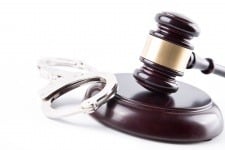All of these can constitute deceptions. The law treats certain verbal conduct, such as boasting, or puffery in a commercial context differently. These statements that typically accompany the sale of goods do not constitute deception. Obviously, these cases are highly fact-dependent. Some statements made in a commercial context may amount to actionable fraud.
Technical Information
Eric T. Kirk is a Baltimore Personal Injury Lawyer with over 30 years of trial experience.
Practice areas: Insurance Claim Denial, Auto Accidents, Wrongful Death.
Location: Baltimore, Maryland. ZIP codes served: 21201, 21202, 21205, 21206, 21209, 21210,
21211, 21212, 21213, 21214, 21215, 21216, 21217, 21218, 21223, 21224, 21225, 21226, 21229,
21230, 21231, 21239.
Neighborhoods served: Canton, Federal Hill, Fells Point, Mount Vernon, Patterson Park, Harbor East, Inner Harbor, Hampden, Charles Village, Highlandtown, Roland Park, Upper Fells Point, Remington, Belair-Edison, Morrell Park, Westport, Brooklyn, Carroll Park, Cherry Hill, Medfield, Bayview, Upton, West Baltimore, Middle East, Park Heights, Reservoir Hill, Cedonia, Guilford, Lauraville, Govans, Homeland, Waverly, Edmondson Village, Washington Village, Sandtown-Winchester, Madison Park, Berea, Barclay, Greenmount West, Butcher's Hill, Greektown, Station North, Old Goucher, Seton Hill, Otterbein, Pigtown, Poppleton, Franklin Square, Hollins Market, Carrollton Ridge, Druid Hill Park, Coppin Heights, Easterwood, Mondawmin, Penn North, Bolton Hill, Oliver, Clifton Park, Northwood, Hamilton, Beverly Hills, Coldstream Homestead Montebello, Pen Lucy, Ednor Gardens-Lakeside, Cold Spring, Original Northwood, Waltherson, Arcadia, Loch Raven, Montebello, Moravia-Walther, Overlea, Ramblewood, Rosemont, Taylor Heights, Westfield, Baltimore Highlands, Brewers Hill, CARE, Downtown, East Baltimore Midway, Greenmount Cemetery, Johnston Square, Madison-Eastend, McElderry Park, Milton-Montford, Patterson Place, South Clifton Park, University of Maryland, Mid-Town Belvedere, Dunbar-Broadway, Gay Street, Jonestown, Little Italy, O'Donnell Heights, Patterson Park Neighborhood, Upper Fells Point, Washington Hill, Ridgely's Delight, Riverside, Sharp-Leadenhall, Stadiums Area, Union Square, Beechfield, Dickeyville, Edgewood, Edmondson Village, Franklintown, Gwynns Falls, Hunting Ridge, Irvington, Penrose/Fayette Street Outreach, Rognel Heights, Saint Agnes, Shipley Hill, Ten Hills, Tremont, Uplands, Violetville, Wakefield, Westgate, Yale-Heights, Ashburton, Bridgeview-Greenlawn, Burleith-Leighton, Central Forest Park, Coppin Heights/Ash-Co-East, Dolfield, Dorchester, Druid Heights, East Arlington, Easterwood, Evergreen Lawn, Forest Park, Franklintown Road, Garwyn Oaks, Grove Park, Hanlon Longwood, Harlem Park, Heritage Crossing, Howard Park, Liberty Square, Midtown-Edmondson, Mosher, Mount Holly, Northwest Community Action, Panway/Braddish Avenue, Parkview/Woodbrook, Penn North, Purnell, Reservoir Hill, Rosemont, Rosemont Homeowners/Tenants, Sandtown-Winchester, Upton, Walbrook, West Arlington, West Forest Park, Winchester, Windsor Hills.
Reduced Fee Program: 30% pre-suit, 35% litigated cases.




